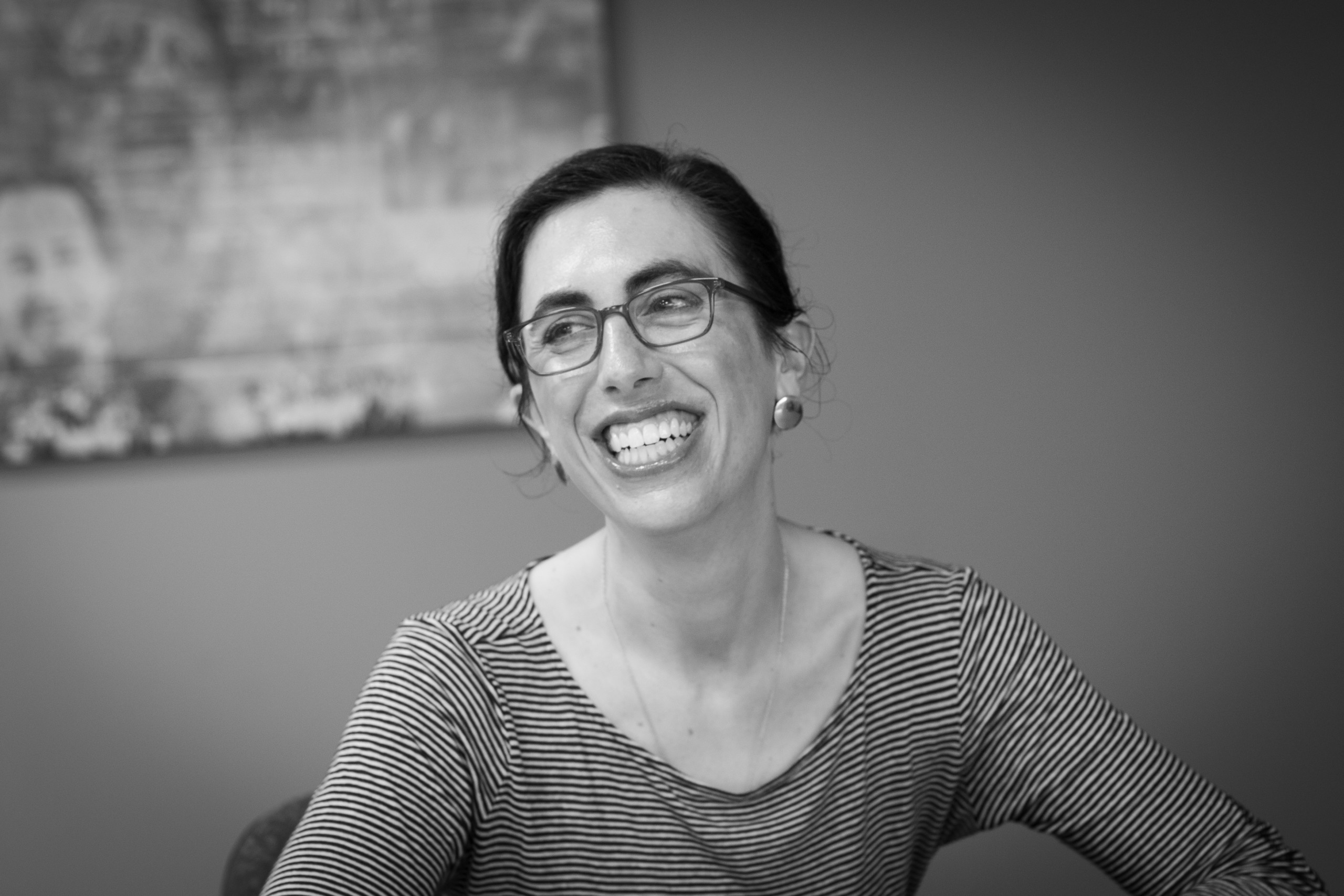Eight years ago, when Sarah Ketchen Lipson began her doctoral work in public health and education at the University of Michigan, she was motivated by one major goal: to understand and address mental health in college student populations. This motivation was born from her experience working in residential life, when she saw time and time again the deleterious effects of depression, anxiety, and eating disorders in her resident advisees.
“Mental health problems were undoubtedly the greatest barrier to student success,” Lipson said.
Now an assistant professor at the Boston University School of Public Health, Lipson is still focused on understanding and addressing mental health in college student populations.
She has taken this interest to a national level through her research project, the Healthy Minds Study.
The Healthy Minds Study – an annual web-based survey examining mental health, service utilization, and related issues among undergraduate and graduate students – has since been fielded at over 300 colleges and universities, with over 300,000 student respondents.
The Healthy Minds Study is used by institutions in numerous ways: from assessing students’ needs before making large investments; to analyzing data in the aftermath of a tragedy; to understanding, through benchmarking, students’ mental health relative to those at other schools.
The study is co-led by Lipson and her colleague, Dr. Daniel Eisenberg, a professor at University of Michigan. Lipson and Eisenberg share a passion for translating research into practice.
“The most sustaining motivator for this work is putting data in peoples’ hands who are actually going to do something with it,” said Lipson. “While many people talk about the mental health ‘crisis’ on college campuses, the flip side is that there is such a unique opportunity for prevention and intervention during college, a time that directly coincides with age of onset for many lifetime mental illnesses.”
The Healthy Minds Study is part of the larger Healthy Minds Network, a “think tank” of sorts that takes a public health approach to college student mental health with three main objectives: producing knowledge, distributing knowledge, and using knowledge in practice.
“We are unique in the college mental health landscape in that our starting point is research,” she said.
The Healthy Minds Study and Network are jointly housed at University of Michigan and Boston University, supported by a team of research coordinators who have helped to grow the study in recent years. With more schools signing on to the survey and a number of new initiatives, the Healthy Minds Network is now a powerful partner for schools, providing them with the data to inform practice and policy on campus.
The Healthy Minds team has translated findings to support an “economic case” for investing in student mental health, essentially linking mental health to academic outcomes. Healthy Minds’ well-known ‘return on investment’ calculator allows colleges and universities to run metrics – like retention rates and percentages of students presenting with mental health needs – through a formula that gives them an indication of what they might save in terms of retained tuition if they were to increase their investment in mental health programming.
This has been a valuable tool for administrators advocating for an increase in counseling budgets, but Lipson is quick to point out that improving mental health support for students doesn’t just mean hiring more counselors.
“The demand for mental health resources far exceeds the supply on many campuses,” Lipson said.
She noted an important exception in that there is a need for improved representation in counseling center staff, which in many cases means hiring clinicians who are underrepresented minorities.
Otherwise Lipson said that many colleges and universities need to think more broadly about student-centered strategies that use innovation and technology to meet the rising demand for mental health resources.
On average, Healthy Minds data show that less than 50 percent of students with apparent need are receiving any type of support. This includes students with symptoms of major depression and students who report seriously considering suicide.
“People talk a lot about ‘help-seeking behaviors,’ said Lipson. “When I was in graduate school, I used to say I study ‘non-help-seeking behaviors.’”
Today, Lipson thinks of this through an equity lens: “It’s not random who gets help and who doesn’t. Students of color, students from low socioeconomic backgrounds, these students are struggling at the same rates as their peers, the difference being that their needs are not being met.”
Lipson believes colleges need to bridge the gap between acknowledging the unmet need and increasing the capacity to meet it with new treatment options, particularly those that appeal to students whose backgrounds and cultures keep them from showing up at the college counseling center. Healthy Minds is a research partner to the Steve Fund and the JED Foundation, which developed the Equity in Mental Health Framework. The framework provides academic institutions with a set of actionable recommendations and key implementation strategies to help strengthen their activities and programs to address the mental health disparities facing students of color.
“If there is only one model for students to choose from – a one-on-one counseling appointment – this is not really thinking about this from a public health perspective. How do we need to tailor our approach to meet the needs of diverse student populations? Where are the opportunities for prevention? Where are the opportunities for the efficient delivery of services?” she said.
Lipson says there is likely a large percentage of students who can be helped in less intensive ways, thus alleviating some of the burden faced by counseling centers. Healthy Minds is increasingly thinking about a “triaged” approach to college student mental health. In collaboration with researchers from Penn State, Washington University in St. Louis, and Palo Alto University, the Healthy Minds team is currently conducting a multi-campus research project focused on identifying students with unmet need and linking them to a mobile mental health platform that provides online cognitive behavioral therapy.
“It’s a really exciting opportunity for us to show whether we can effectively identify students in distress [and] link them to an online resource that may potentially be what they need,” she said, noting that many students may prefer and benefit from evidence-based online tools they can access in their own time and on their own devices.
Another major development in the intervention area is Sage, a digital tool that will provide education and support to students who participate in the Healthy Minds Study. After students complete the Healthy Minds survey, they will be invited to click on a link to the Sage site where they will be shown a curated list of mental health-related resources. The resource list will be tailored based on the students’ characteristics and apparent needs reflected in the survey instrument. Lipson, Eisenberg, and the Healthy Minds team have piloted the Sage platform and hope to roll this out on a national scale in the coming years.
Lipson’s move to Boston in 2018 includes plans to expand the Healthy Minds Network with additional staff and new partnerships through Boston University. She continues to co-lead the Healthy Minds Study and Network, and has recently been pursuing new opportunities to use her survey data to inform diversity and inclusion efforts.
“There is a national dialogue about college student mental health, and there is a national dialogue about diversity and inclusion. My goal is to help bridge these two dialogues with data and evidence-informed policy recommendations,” Lipson said. “I’m extremely lucky,” she continued, “in that my work as a mental health disparities researcher is truly valued at BU, and I have opportunities to conduct the research that I hope will create real change.”
Sarah Ketchen Lipson, PhD, EdM is an assistant professor in the Department of Health Law Policy and Management at the Boston University School of Public Health. She is co-Principal Investigator of the Healthy Minds Study and Associate Director of the Healthy Minds Network.


